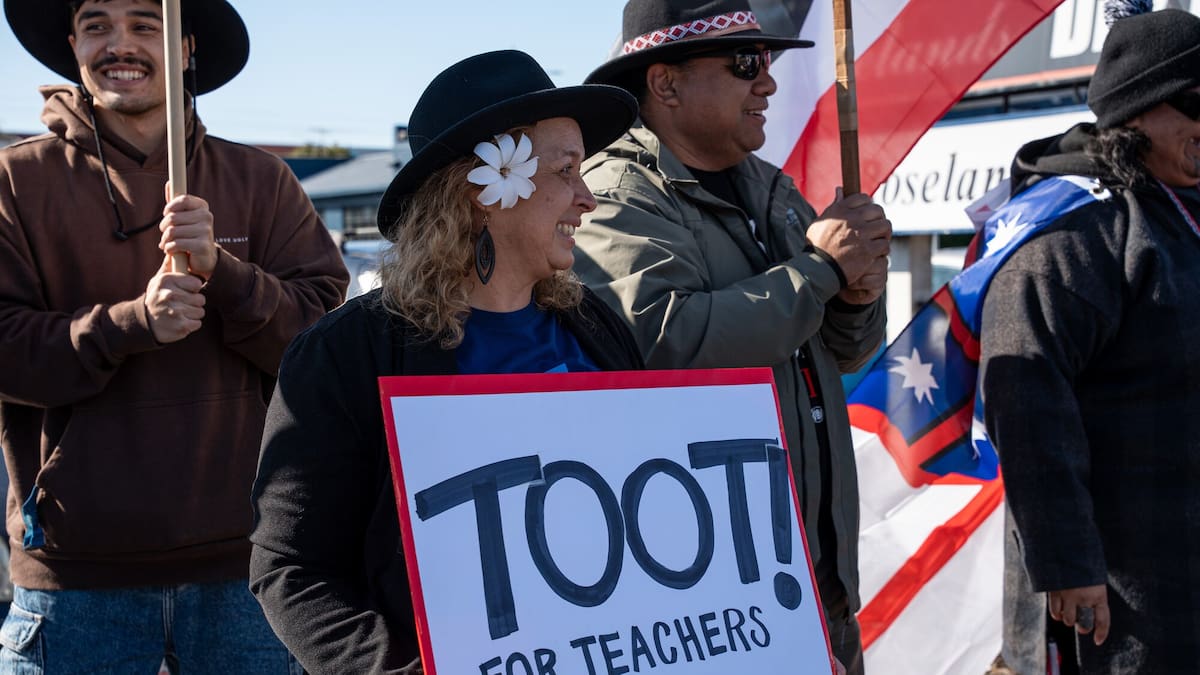Teachers
will refuse to teach certain class levels, from Years 7 to 13, on certain days, as well as taking part in Thursday’s full-day national strike.
They will also carry out a ban on extracurricular activity on October 29 and will take part in a full, national, two-hour strike on the afternoon of Wednesday, November 5.
Post Primary Teachers Association Te Wehengarua president Chris Abercrombie told The Front Page it was disappointing that the action was happening.
“Our issues aren’t being addressed, and we know there is a significant unmet need in our secondary schools at the moment, be it mental health needs, specific learning needs, or a lot of other things.
“We’ve got this Government introducing a once-in-a-generation curriculum and assessment change, and we need a workforce to be able to deliver that.”
Abercrombie said the Government needed to consider international research that suggested keeping up with changing requirements was a significant stressor for teachers.
“New Zealand teachers are some of the most stressed in the world. We’re the third most, according to this survey.
“And most of that is driven by the constant change put forward by the Government, and that’s putting a lot of pressure on schools, principals, learning support, on all aspects of the sector.”
The research he cites is from the Teaching and Learning International Survey, the world’s largest international survey of teachers and school leaders.
School looked a lot different for younger generations, Abercrombie said.
“If you’re not dealing with teenagers every single day, you just can’t really understand the world they’re living in.
“One example I can give is around bullying. Back when I was at school and bullying happened, they didn’t ring up the landline and go, ‘Hello, Mrs Abercrombie, can I please bully your son?’
“Now with the world as it is, and how connected we are, it’s potentially 24/7 for these young people. I know it’s easy for older people to say, ‘Just turn off your phone.’ But that’s their [young people’s] connection to the world, the connection with their friends.”
Abercrombie is optimistic that the Government will return to the bargaining table.
“There’s an old saying, teachers’ working conditions are the students’ learning conditions.
“If we’ve got a well-supported teacher workforce, then we’re gonna have a well-supported student body, our young people.”
Listen to the full episode to hear more about:
Reasons for the secondary teachers’ strikeWorkload and curriculum issuesChanging student needs and mental healthTechnology and modern pressuresTeacher shortages and morale.
The Front Page is a daily news podcast from the New Zealand Herald, available to listen to every weekday from 5am. The podcast is presented by Chelsea Daniels, an Auckland-based journalist with a background in world news and crime/justice reporting, who joined NZME in 2016.
You can follow the podcast at iHeartRadio, Apple Podcasts, Spotify or wherever you get your podcasts.

